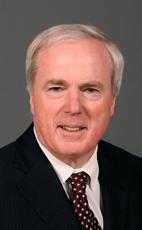Mr. Speaker, I appreciate the opportunity to stand in the House this afternoon to say a few words in this debate.
It is an interesting debate that I have been following very closely. It really blends in the issues that have been around a long time. First is the issue of self-defence. In other words, a resident of Canada has the basic right to protect his or her person, family or property and use whatever reasonable force is necessary, depending on the circumstances.
It follows in the continuum to the next issue of the right of someone to make a citizen's arrest. Generally, the law has been that a citizen's arrest is made during the commission of an offence. If we move along the continuum, we get into the whole issue of vigilantism, where someone or a group of people takes the law into its own hands. Of course, that principle is not supported in a free and democratic society.
This legislation arose from the case of Mr. Chen in Toronto. Certainly, no Canadian I have ever spoken to or heard from has expressed anything but support for Mr. Chen and the circumstances he found himself in. He obviously is a small business person who works hard, plays by the rules, pays his taxes and was the victim of a crime.
Unfortunately, he was not able to effect a citizen's arrest but did identify the victim. Lo and behold, a day or two after the commission of the original offence, the offender reappeared at Mr. Chen's place of business and the latter then effected a citizen's arrest. Unfortunately, at one point it looked as though he would be subject to sanctions from the authorities. Certainly every Canadian did not agree with that position, which was unfortunate, and the response has been overwhelming.
Since then, there have been a number of private members' bills and Bill C-60. This legislation would change the statute, but not substantially. Rather, it would broaden the statute and add the concept of a citizen's arrest being made not only on the commission of the offence but also on a reasonable time thereafter. Of course, that begs the question, which other members have spoken to, of what is a reasonable time.
At first blush, I believe most members of Parliament support this legislation, and I support it and its referral to committee. It is important to get this legislation to committee so that committee members can hear from some police officers, criminologists and experts who deal with this issue on a day-to-day basis.
It will be a very interesting debate in the committee and perhaps the committee will decide at the end of the day after hearing witnesses that the law does not require any changes, but it would appear now that there seems to be a fairly broad level of support for this particular initiative. I support it very cautiously, and I certainly will be deferring to others who are more knowledgeable in this area than I am and will be following the debate in committee very closely.
We get into this whole issue of what is reasonable. Do not forget that if anyone is ever charged with the offence of unlawful arrest, the Crown would have to be in a position to prove that offence beyond a reasonable doubt, which is an extremely high threshold. We could envisage all sorts of circumstances where a person or child was offended, assaulted or whatever, and then two weeks, three months or six months later, he or she decides to make an arrest without the powers, authority and respect that peace officers have.
That would lead to the next question of whether the person making the so-called citizen's arrest is entitled to use whatever reasonable force is necessary in the circumstances. Is he or she allowed to enter a private dwelling? Is he or she allowed to go to the person's workplace? There are some issues that will be given a full airing when the matter goes before the committee.
Again, it is extremely interesting. It is an issue that members should proceed cautiously on and whether the law requires tweaking or amendment, I believe, should be considered after the committee has had a good, long, hard look at this particular legislation.
As I said before, I will be voting for this legislation when it comes up for a vote at second reading and I will be following the issue extremely carefully before committee.
That basically concludes my remarks. I have summarized where I stand on the particular issue. It is an interesting issue that requires a little more discussion, review and analysis when it does go before committee.

